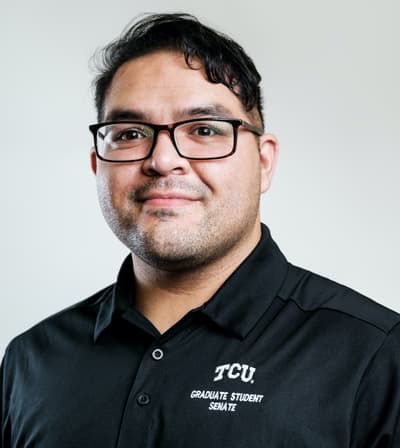Mental health has emerged as one of the most urgent effects of the pandemic. With more people than ever seeking treatment for anxiety and depression, graduates like Julian Gomez ’18 want to help as many individuals as possible. Now earning a Master of Education in Clinical Mental Health Counseling at Texas Christian University, the Psychology major says he was often sought out by friends and family when people needed to open up about their lives. He now sees it as his professional calling. This fall, he will begin pursuing a Ph.D. in the University of Texas San Antonio's Counselor Education and Supervision program.

“I have learned so much when it comes to working with people and it has never been more relevant than when the pandemic hit,” he said. “Clinical mental health counseling sets you up to work more individually with clients or with groups, especially in hospitals, nonprofits, and other various settings. I’ve definitely seen major shifts with peoples’ mental health during the pandemic. While it’s been hard to hear their stories about how things have impacted them these last two years, it’s also been great to see people change and grow so much from the first time I met them. One of the most rewarding things is seeing how everything I’ve been learning is having a positive effect outside of the classroom by directly benefitting people.”
Despite the abrupt shift to remote work and courses during his spring cohort, Gomez says those challenges were useful tools when learning how to interact and practice counseling.
“Anyone that started a counseling program during this time is very much trained in telehealth services,” he said. “We had to learn how to be even more effective, especially with barriers like not having a physical presence in the room. I think it kind of forced us to be even more in tune and observant. You can learn so much just from a person’s facial expressions, body language, and by asking more questions.”
Gomez said he noticed more anxiety and depression right off the bat with his patients at the beginning of his field work.
“In my practicum class, some of the first people we spoke with were adults in a mental health hospital and kids and teens in art therapy,” he said. “Anxiety was very much present in all of them, and we saw the burnout and fear because of everything they were seeing and hearing. I saw a lot of anxiety in adults who, on top of dealing with things they were already experiencing their jobs or personal lives, were now being affected by everything related to the pandemic like mask mandates, testing, remote work, or school. It was all so overwhelming, and people were dealing with the ever-changing world now in addition to the challenges they might have with their personal life, career, and their treatment.”
One aspect of this educational journey that ended up benefitting Gomez and his classmates was that they were going through some of the same things as the people they found themselves counseling. He decided to turn his own stress and worry into something that would benefit his patients.
“A great thing about being in a counseling program during the pandemic is that our professors fully understood that we’re not just students; we’re also people dealing with this chaos,” he said. “Everyone was great about checking in on us and they understood we have lives and families, too. That support allowed us to help our patients even more. In terms of our interactions, it was easier to relate coursework to real world situations because we were all going through similar things, and it was extremely relevant to share our own stories with people.”
Gomez says he first began learning the importance of building connections with people at TLU.
“Professionally, TLU taught me how to navigate the academic world not just by learning the writing style or technical aspects, but how to connect and engage with others in a meaningful way. TLU got me out of my shell. Everyone I met, from fellow students to faculty and staff, all encouraged me to be who I am and not be afraid to put myself out there. I learned to take advantage of all the moments I had to grow personally and professionally.”
As a first-generation college student, he is also grateful for the opportunity to receive an education and encourages prospective students not to doubt themselves.
“I once thought it wasn’t possible to go to a university like TLU and I was scared to take the chance,” he said. “I want to say that you should take the chance and I wouldn’t trade my experience for the world. Someone was always there to support me through anything and everything. When I arrived on campus in 2014, it was such a family community. People are there to check in on you and make sure you get through things.”
Gomez says that is especially true for fellow first-generation students who are navigating the world of higher education without any kind of road map.
“To have other people—students, faculty, and staff—who know what you’re going through or have been in very similar situations is amazing. Since our parents may not understand what we’re going through, having that support from others who recognize your own achievements is important. It’s hard sometimes for others outside to understand what you’re going through. The open dialogues and the fact everyone at TLU is there to support you from academics to financial aid is wonderful. Everyone cares about everyone and it’s a wonderful place to go to school.”
